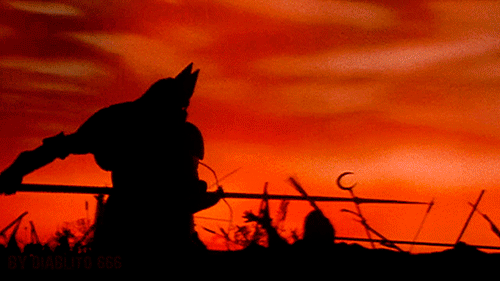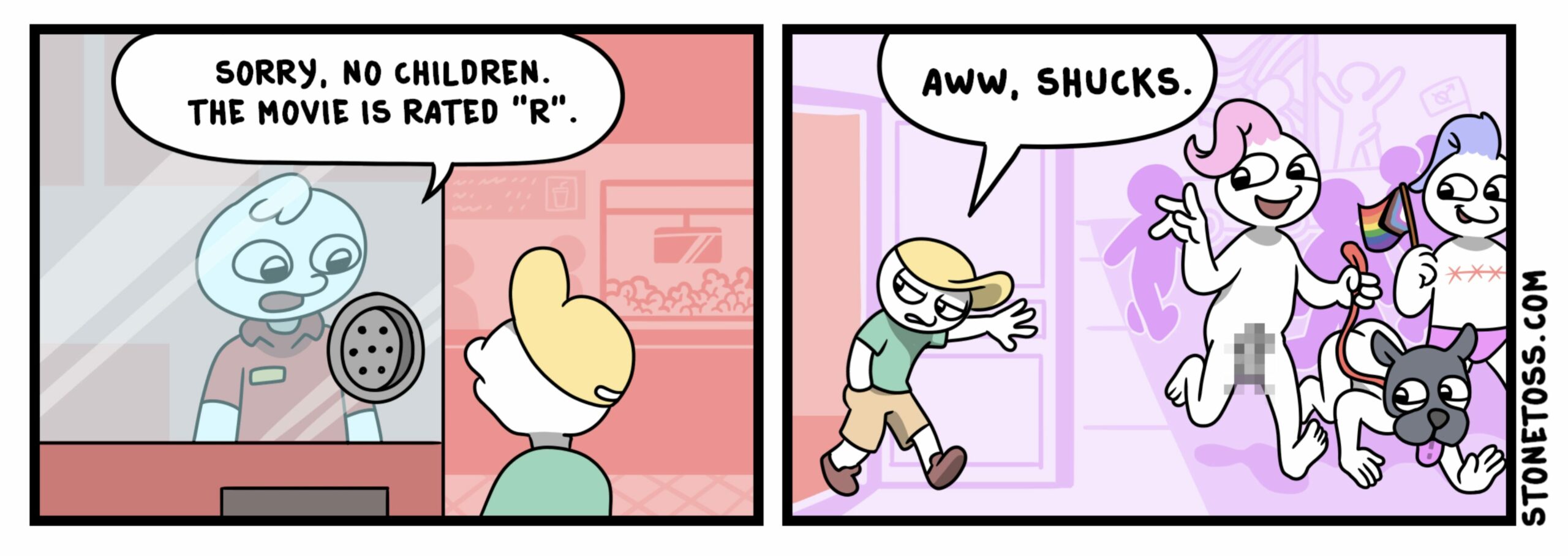In the right wing’s attempt at creating a parallel society, they have an entire spectrum of political video streams that act as de facto news bulletins and current affairs programming. This also includes political documentaries with genre classics like Europa The Last Battle being successfully used as a normie-sphere propaganda weapon.
But in its embryonic cultural state, the right wing has not substantially contested entertainment such as sports coverage or created its own independent cinema.
We have no movies of our own and so legitimate nationalist audiences either stick to the past, selectively curating classics from previous film history (as if in the end of culture) or boycotting cinema entirely. Either way standing frozen in time as the world marches on.
All In The Family
Francis Ford Coppola has perhaps the greatest four-movie-run in film history, dominating a decade with much of the 1970s cinema mythos based on his output.
Skipping some rather interesting attempts at cinematic utopianism that you can look into yourself, this story begins with a mostly unknown Coppola hired to direct a Mafia film because he was Italian. He requested the studio cast Marlon Brando in the title role, but by this point Brando was blacklisted from Paramount for being incredibly difficult and so this idea was flatly rejected. Coppola, quite fixated on casting the movie star, was unable to conventionally negotiate around this and so spontaneously fell to the ground, having a fit in front of the studio executives, banging his fists on the carpet.
This act of performative insanity forced Paramount, perhaps out of bewilderment, to shift and allow Brando under certain strict conditions (most of which they relented on). Long story short, The Godfather was a huge smash hit 3-hour epic with Academy Awards for best picture, actor (Brando), director (Coppola) etc.
Then he made The Conversation, one of the greatest thrillers of all time, which would then be nominated alongside his next film for the same Academy awards. That next film would be the 3.5-hour Godfather Part Two, both a sequel and prequel, often considered even better than the original, which is true, it’s more epic, sprawling, intercutting between different intergenerational family stories, and the two films would sweep the Academy awards again.
Coppola’s only competition was himself, being nominated for all the top prizes twice.
Godfather 2 would be made with more creative control and stipulation that troublesome Jewish studio executive Robert Evens be banned from the set. All the binge-watching sagas of Netflix don’t even get close to the quality of the two Godfather epics.
Having now conquered the artform, Coppola raised his ambitions so high, that despite insane success, the studios would not support his new venture. Coppola had a vision for tackling the Vietnam war, something that hadn’t really been done yet and it was based on a fascist John Milius script. So he bet his own hard-earned riches (and house) on the production that took over 3 years to complete.
The once-darling of the press when working for the studios was now mocked for going over-time and over-budget. But with the comfort of hindsight, we can now recognise Apocalypse Now as one of the greatest films ever made, a true example of filmmaking heroism that created a kind of modern creative mythos for artists who want to climb unscalable mountains.
This specific artistic journey is immortalised as shorthand for filmmaking bravery in cinephile circles. It also mirrors and possibly borrows from a lower budget example, Aguirre The Wrath Of God, by German filmmaker Werner Herzog. Another river-journey filmed in risky foreign locations but this time shot with stolen cameras from a German film school.
The self-financed Apocalypse Now by Francis Ford Coppola is often ranked as one of the greatest films of all time.
On a recent episode of WarStrike, Eric Striker took issue with legendary filmmaker Coppola, whose middle name comes from industrialist and “The International Jew” author Henry Ford, for literally betting the farm (his vineyard and winery) on an ambitious self-funded $120m epic “Megalopolis”.
Striker compared him to the “baby boomers”, spending their children’s inheritance on frivolity. He went on to call the director an “egotistical piece of shit”. But I believe Striker is showing the right wing’s limitations when discussing art, where it often ends up hitting its head on a philistine glass ceiling.
Right-wingers and nationalists are banished from artistic circles and institutions, and so it’s natural that they will be drawn to more literal politics or MMA gyms as they lay low, planning insurgencies from the wilderness. Consequently we have great intellectuals that can dissect philosophy and politics but not much of an artistic culture of our own.
Striker sees Coppola’s attempt at making an epic masterpiece during a time of otherwise civilisational decline as “selfish” and he sees Coppola self-funding his own work purely in economic terms. When in reality, Coppola had previously done this with Apocalypse Now, where he mortgaged his home, to similar negative press, but ultimately being vindicated by winning the Palm D’or and the film being an instant classic.
This isn’t just financial success, this is what we used to do, create important art that enters the zeitgeist.
Like the great industrialists, imposing their vision upon the world, the best of cinema has been heroic men bringing visions to life despite every obstacle. Buster Keaton losing money to blow-up a bridge and destroy a real-life working train that crash-dives into a river still means more than the greatest CGI of our current moment.
Some work is ahead of its time or simply made in eras of conservative distribution. Some films simply don’t work, but their ambition can be appreciated. Not every bold attempt will be a bullseye, but we need archers to continually aim for the target. Even a fallen warrior must have been a warrior first and therefore deserves respect.
The movie industry refused to fund Megalopolis and so Coppola’s job as an artist is to realise his vision through force of will regardless. Rather than shallow financial analysis, Megalopolis, regardless of its finished form or politics, should be seen as a heroic act of independent ambition that defies the Hollywood system.
Striker’s idea that the Coppola children are being “disinherited” is again shallow and easily refuted. Firstly, no money has been lost yet and even a failed cinematic run can be recouped through other means endlessly over time by whoever owns the film rights (which is likely to be his children). Apocalypse Now was widely re-released in cinemas two more times since 1979 as different cuts. A now classic “making of” documentary called Hearts Of Darkness acts as an orbiting moon, perpetuating Coppola lore, shining back onto the movie and solidifying his legend.
Similarly, Coppola has entrusted a making-of documentary about Megalopolis in the hands of innovative British filmmaker Mike Figgis. This is a great piece of insurance because whatever the oligarchical studios intend to do with Megalopolis on release, such as using their monopolies to prevent it being widely distributed or have any mainstream press, a sense of gravitas can be built over time through the documentary to win the long game.
In fact, even the Coppola flops such as One From The Heart (1981) and The Cotton Club (1984) seem to be winning a long game with new cuts, re-releases and physical media. This has brought in new money and revisionist appraisals.

Coppola points out that the most important thing he has given his children is filmmaking experience that in both cases gave them successful careers.
Roman Coppola was entrusted with practical special effects on Bram Stoker’s Dracula (1992), one of the most visually audacious horror films ever made. This was such a radical move during the rapid rise of CGI to use in-camera traditional FX and it breathed new life into cinema. Roman continues to be a successful director/producer in his own right and heads his father’s company American Zoetrope, which has produced Megalopolis.
Francis’s daughter Sofia is also a hugely successful director, one of the most acclaimed women working today, with such modern classics as The Virgin Suicides and Lost In Translation.
Francis’s children being gifted such a head start, given practical filmmaking experience from a young age that in both cases has borne fruit means that the legendary artist has already given them everything they need. He has simply been a good father.
I don’t believe for one second that the children would resent their dad attempting to make another great film outside the Hollywood system. These children are his legacy as much as his filmmaking is their filmmaking. The unbroken lineage between the father’s achievements and his children keeping the flame alive seems like a foreign concept to our modern world of broken families, teenage rebellion and individualism.
Francis could die tomorrow but significant Coppola films will continue being made for decades because of his offspring. This is the true transference of intergenerational wealth, not just the money that Striker is protesting about.
This family business is a living amorphous thing dealing with abstract culture and even if this film flops, the saga that is the Coppola family’s cinematic output is entrenched and guaranteed to unfold in the future. Literally grandfathered in, the Cannes Film Festival press conference for Megalopolis had several generations of Coppolas (including young grandchildren) taking the stage.
Sofia Coppola’s Lost In Translation. Francis Ford Coppola’s legacy, apart from his own classic films, are the successful films made by his children.
Cinema and the right
The idea that the dissident right cannot produce its own feature films and long-form entertainment is enforced by the very same arguments Striker has made in regards to Coppola.
Unlike the left, the right cannot see art and the culture war in terms of self-sacrifice or romantic battle but instead look at it with risk-aversion. They don’t see artistic creation in heroic activist terms or such bolder steps to conquer the culture would have already been made.
We are too responsible and vanilla, our most radical are simply too autistic, unsophisticated or unfeeling to tap into the emotional arts at scale.
Nationalists don’t see a filmmaking crew in militaristic terms or understand that low-budget cinema is called “guerrilla filmmaking” for a reason. They don’t mythologise Coppola using real Filipino military aircraft to shoot Apocalypse, helicopters that would have to leave mid-shoot and go fight real rebels in the mountains. Movies are often real, mirroring what they depict.
Perhaps worst of all, nationalists simply don’t see the opportunity there for the taking, that there is a huge unmet market crying out for content if only more of us showed artistic leadership. This despite the accessible technology making such moviemaking endeavours affordable and achievable.
Even native Nigerians have fashioned a micro-budget film industry of their own (known as Nollywood). That’s right, White nationalists are being cinematically outdone by sub-Saharan Africans.
When the tools are so accessible the only major cost is time and labour, so surely a passionate political movement can generate some collaborations and labours of love? For the moment, apparently not.
I’ve had several private conversations about this with significant DR creators including talented video editors to prominent movement leaders and I get the same answer – “we don’t have the required millions of dollars to do it”. Well neither do sub-Saharan Africans and yet they make 2,500 movies per year.
This obsession with money again shows the ceiling on both creative imagination and historical knowledge regarding cinema that the dissident right has imposed upon itself. If you had the same conversation with a leftist university film student or academic, they would list-off a series of significant zero to micro-budget films. Some of which will be little known or seen by the masses, but exist as avant-garde works informing elite sensibilities.
All ideas first emerge in avant-garde art and literature. And that is the context left-wing academic film culture exists in, embracing low budgets, ingenuity and all the radicalism of being in the underground, which is in turn brought to mainstream festivals to stimulate the ruling class.
It seems as supposed counter-revolutionaries, the right wing wants everything given to them on a plate by the very establishment they are opposed to, with an aesthetic palette quite childishly focused narrowly on big budget Hollywood, the very thing they should be rebelling against.
When compared to the left, this shows a stunted formation of sensibility. Progressives, who admittedly control the culture and institutions, do offer a far more sophisticated view on form, style and content when it comes to their cinematic appetites.
And when someone finally does offer something slick that’s made outside the beast system, it’s being poo-pooed by one of our most prominent thinkers for being self-funded and indulgent before even being released. How else can anything be made outside the Jewish Hollywood system without self-funding?
Some quick lessons in zero-budget filmmaking and how to turn restrictions of budget into strengths.
A.I art is gay
Recently on an episode of Mark Collett’s film club, panellist Nativist Concern suggested that A.I could be the solution for making our own movies. Fellow panelist Morgoth pushed back slightly, pointing out that we dont just need to make “Star Wars” type films that require big budgets, implying that we should be working within our means.
And I agree, in fact I wish there were more pushback on such a comment. The answer to a lack of output is to simply pick up our cameras and start shooting. To come up with efficient concepts and bring them to life.
Cinema is simply people shot on locations over and over stitched together as a narrative. So base a narrative and methodology on locations you have easy access to and cast friends in your circle.
Stop overcomplicating things and be more impulsive with the tools you have. Don’t fixate on 4K resolutions and gear-lust, creativity is far more important. A.I art is worthless and it’s treated as such by the public.
Labour and scarcity are the source of all value and when something can appear instantaneously without effort or cost, we instinctively know it’s worthless. Collett’s film program is very important in our sphere and it should be encouraging people to make their own human-made low budget films. The idea that we wait around for the beast to vomit up material from the void is ridiculous.
On WarStrike, Warren Balogh, environmentalist, artist and general purist about things, has surely against his better judgement started to play A.I performed rap songs every episode. Originally, they were sent in by a listener as humorous racially charged text lyrics to be read out by Striker and Balogh.
This conjured the best era of radio comedy as they tried to maintain composure performing these negro-styled rhymes with natsoc content. But now that it’s read-out by a computer, to sound like a normal rap tune, it’s lost the comedic magic and tends to be something worth skipping (in an otherwise excellent program). It reminds me of those teenage girls doing selfies in the mirror with “fuck capitalism” written on their iPhones.
And you can see that A.I imagery is quickly destroying memes with their weird uncanny valley effect. These dead-eyed images fail to properly capture social dynamics between people in the frame or express emotional ideas effectively because they are devoid of authentic human input. A horrendous cartoony-photoesque aesthetic grazes our eyes like sandpaper. A crude MS paint scribble from a human will always have more intention and power.
We have to be honest, the dissident right has an A.I problem with no clear philosophical position to guide us and save our creativity from atrophying. I’ll do it now, A.I is gay and should be avoided apart from being a discrete tool to fix and manipulate things as part of a larger project. Used more like a filter to fix audio. But we need actual artists to be creative and to maintain some things as sacred.
If we can’t master and effectively critique artforms, forget larping as revolutionaries of the future.
There was this German guy who was an artist that became a great leader. He had a distinctly human vision for the arts and creatively delegated many projects successfully. This included entrusting film production with a female dancer who would end up changing cinema.
This leader was grounded in the ancient and used that to inform a new avant-garde whose fruit we still enjoy and take for granted today. We talk about “the volk”, “Aryan spirit” and the “natural world” yet our embrace of A.I aesthetics wills on pod-dwelling and virtual futures.
Sometimes it feels like we are clambering for top bugman status above our enemies. It’s time to grow up or perhaps “human up” and take a strong philosophical position. We shouldn’t lay on our backs like upturned beetles, lost in relativism while helplessly waggling our tiny legs in the air.
Ryan Gosling’s Bressonian interior acting style allows meme-makers to use him as a blank canvas to project ideas onto. In this case, “He’s literally me” is longing for mythical Hyperborea and his embrace of the ape is a reference to the “return to monkey” meme, which represents humanity having hit a dead end with modernity and needing to reverse path. Such memes constitute the current experimental filmmaking avant-garde.
The right-wing New Wave
There are a few potential greenshoots in the dissident right and they should be part of the conversation. In Ireland there is dystopian speculative fiction akin to Gray State being produced by Roddy Murray Films called CAESARMEN.
In Australia there is a proposed historical revisionist drama that presents a 1990s mass-shooting in Port Arthur as a false flag used to remove citizen gun-rights called WASP. This one is being conceived by Paul Moder, an actor from the original Saw short film (that spawned the biggest horror franchise of all time). And the White Art Collective do have a feature horror film going into production called Once Upon A Time In Minnesota.
But these are all unfinished or entirely unshot films. I applaud each filmmaker’s ambition, they are essentially operating in a vacuum and as rough, imperfect or low-budget as the films may turn-out – they do constitute the right-wing avant-garde.
Left-wing academic film culture is very good at judging work on their merits and in context, they are very open to raw, amateurish and outsider art in search for something unique, special and entirely new within it. On these terms the left’s film criticism is quite advanced and adventurous. They have countless film journals, institutions and entire courses dedicated to this.
I spoke to one prominent nationalist about Jonathan Bowden’s zero-budget avant-garde work Venus FlyTrap and it was dismissed pretty quickly. Not one person from our movement has even managed to review it on IMDB. I think the left would take a bit more time discussing an experimental film by one of their philosophical heroes.
We need to make sure right-wing critics and audiences are ready for any new wave of cinema our movement produces, and have the sophistication to deal with it properly on zero budget, outsider and embryonic terms.
The handmade Murdoch Murdoch series took South Park’s original minimalist animation style and simplified it further to create one of the greatest political satires of all time. Entirely independent and uncensored, they managed to create 85 hilarious and occasionally transcendent episodes. Watch all episodes
Although the dissident right hasn’t produced much of its own feature films, they have accomplished a lot in what could be described as short experimental work with meme culture.
This shouldn’t be understated, much of it is quite extraordinary. Through meme video culture, entirely new visual languages are being written and it could be the key to our own distinct longer-form work. It follows a well-worn revolutionary pathway in using pre-existing footage and radical editing to give something an entirely new context and meaning.
This is what early Soviets did before they could acquire their own film-stock, forced to re-edit films from Germany and America. But these limitations meant they formed an advanced editing language of their own that international cinema itself would later absorb. The current crop of anonymous meme video editors are akin to the early Soviet film schools recutting foreign films for their own political purposes.
In its current state, Hollywood is truly foreign to the nationalist, but the studios offer billions of dollars of free footage that can be edited out of context to create something new. Soviet montage theory saw the cut/juxtaposition between two images as a revolutionary act that gave birth to a third entity. Hollywood probably wasn’t prepared for left-wing Jewish films like American History X being sliced up, taken out of context and stylised to champion the themes originally intended to be demonised.
Ryan Gosling’s interior acting style is being used as a blank canvas for meme makers to project whatever they want onto it. The pathos of “He’s literally me” allows nationalist video makers to emotionally connect with millions on social media.
And every historic epic is being cut into something glorifying European history, ethnicity, masculinity and with the propagandist purpose of awakening the dormant warrior class within.
This is why TikTok may be banned, because it favours the young independent creator, but they will have to shut the entire internet down to stop meme videos, and at that point we have won.
Another thing the nationalist scene has managed to do is generate many of its own film critic live streams.
So this shows culture is not entirely being ignored but dealt with critically in round-table discussion formats. It also encourages participation from the audience who give their two cents or ask questions using superchats (the lifeblood of alternative media – spend generously). This is valuable in the sense that it again follows a well-worn revolutionary pathway.
The French New Wave was born from film critics unsatisfied with what the system had produced, who then went on to create radical work of their own. The Nouvelle Vague broke rules in terms of how low their budgets went, incorporating a DIY ethos, shooting on location, radical editing (some of which was borrowed from Soviets), using technology in new ways (including hidden cameras) and with their own revolutionary politics.
This would go on to change Hollywood, cinema and society. Today’s equivalent would be shooting a movie on your phone and just getting on with it.
Our podcast streamers are halfway there, they are already using cameras to stream themselves, they just need to start filming other things. Most of them already know how to use editing software.
The dissident right must see themselves more like leftists in the 1960s than atomised individuals suffering paralysis in the 2020s. They need to drop-out, use welfare, gain favours and dedicate themselves to film projects if we are to see a cinema of our own.
This is the true Masonian radicalist position on the arts. Welfare is guerrilla warfare, Mao Tse Tung’s “take what you need, use what you can”.
University students and graduates have no problems living this way as soldier activists. The right has no choice but to use the system in the same way to create a brigade of time-rich creatives to bring ambitious visions and new cultural spheres to life.
If we weren’t so buttoned-up, well behaved and pathologically employed – we could achieve so much.

Where to next?
So you are right-wing, you like art and cinema but don’t know where to find based film criticism?
Here is a guide to some of the best content out there. If there is to be a right-wing new wave of filmmakers, many of them will be watching these streams. Like Jean-luc Godard and the French New wave, Some of them will be the streamers, guests and audience members themselves, born from our own critical culture.
I can’t name everyone and there will be people I don’t know (so do comment on social media about anyone we have missed), but here are some that everyone in our movement should be following.
Subscribe to every one of them, allow the cultural content to flow to you as it arrives and be part of the conversation. If this critical culture gets bigger and more serious, like a volcano, it will have nowhere else to go but the production of its own cinema.
A guide to dissident right-wing film criticism
Academic Agent
His streams are not normally formatted as film reviews, but he has taken on a major cinephilic project in a complete retrospective of documentarian Adam Curtis. This means all episodes of every Adam Curtis TV series made for the BBC is being streamed in full with an unobtrusive commentary at certain moments where the documentary is paused to reflect (now encompassing a panel of other informed Curtis enjoyers).
This is to both critique the montage-heavy filmmaking style of Curtis but also to ponder the political events and concepts being presented. Adam Curtis exists as a mysterious figure who has for several decades somehow been given free rein at the BBC to make radically edited high-brow political documentaries, including Century Of The Self, which helped redpill Kanye West on the JQ and in turn shift the Overton Window.
Though this series is distinct from AA’s regular content, he does infuse pop-cultural and artistic references into his normal political discussions. This retrospective could take years and I applaud the undertaking. I also have it on good authority that Adam Curtis himself tunes into some of these retrospectives.
Follow on YouTube.
Devon Stack PhD (AKA Blackpilled)
In his highly influential dissections of cinematic propaganda, Devon Stack usually focuses on what the enemy is producing and breaks it all down scene by scene to analyse how brainwashing works in real time. With a background in media and marketing, Stack holds a very unique place as a film critic.
One of his greatest works, the “Pat-Con” series, is a wild and sprawling reaction to “Indivisible: Healing Hate”, a regime-produced TV series, which gave Stack an opportunity to tell the truth about American political history, false flags, Waco, January 6 and the federal involvement in destroying patriotic movements.
Truly landmark, start with this excellent Pat-Con series, which can be found on Odysee and Bitchute.
Mark Collett
Monthly, rain hail or shine, Mark Collett, leader of Patriotic Alternative UK and a panel are delivering lively 2-hour film review streams darting back and forth between the latest releases and classic films.
Both good and bad films on offer and with an emphasis on the political and archetypal themes, this has become a tent-pole in right-wing film criticism and one of the best places to start.
It’s also a good place to ask a question as generous answers are given to superchats by Collett and the panel. Collett usually brings a solid thesis on what he thinks about a film and challenges his panel to bring the same. Occasionally it becomes a rigorous debate.
The program has guests like Morgoth, Warren Balogh from Warstrike, Devon Stack from Blackpilled, author Kevin MacDonald and Dr David Duke. Any nationalist should already be subscribed to this channel on Rumble, Odysee and Bitchute.
Decameron Film Festival (Produced by Guide To Kulchur)
Fróði Midjord conducts perhaps the most important annual cinephilic event on the calendar, which is an entire month of daily film reviews with a variety of special guests, each bringing a thesis on what they think about an important work.
Guests are essentially the who’s who of right-wing thinkers and culture critics, pretty much everyone I am listing here and more, all brought together for one event that truly stands alone.
Apart from this, Fróði has a back-log of great film review programs done with the enigmatic and raspy-voiced Ty. E, one of the most informed, provocative and engaging film critics on the planet.
Fróði, himself a supremely insightful observer, has with this event and his regular Scandza Forum become an important cultural leader. Unmissable. Found on Odysee, but there is a Bitchute too.
Morgoth’s Review
As a film critic Morgoth is essentially a walking Boy’s Own Annual and doesn’t pretend to be anything else. And so he dedicates time beyond his normal philosophical video essays to review deeply macho cinema, emphasising the chiselled work of Stallone and Schwarzenegger with an embrace of the propagandistic for all its mythical power.
The follow-up of that one-two punch is the exploration of such films’ satirical aspects. Like the biting or prophetic Demolition Man and Starship Troopers. With a strong intellectual basis, contextualising everything that’s symbolic and delivering his takes with a higgledy-piggledy northern accent, Morgoth is one of the best social commentators in the dissident right.
His barricading himself into the action section of a video store is some of the best fun to be had in film criticism. It’s a high-brow mind taking-on low-brow cinema.
Follow on YouTube.
Richard Wolstencroft (Report From Tiger Mountain)
Richard Wolstencroft isn’t just an online personality. In Australia he created a wildly reactionary film festival in a direct attack upon the government-funded art world. The Melbourne Underground Film festival is a historically important event that has premiered the early work of James Wan, Greg McLean, Scott Ryan and the Spierig brothers, who would go on to make Saw, Wolf Creek, Mr Inbetween and Predestination respectively.
MUFF held a retrospective of Brett Easton Ellis film adaptations (with Ellis in attendance) and showed a proof of concept trailer for Paul Moder’s “WASP” (the previously mentioned Port Arthur revisionist history thriller). The festival continues to be a last bastion of free speech in the most locked-down, over-governed and shitlib city in Australia.
As a filmmaker, Wolstencroft has produced one of Australia’s only overtly fascist-themed feature films with Pearls Before Swine (starring industrial music pioneer Boyd Rice). With his position as festival director he has continued to be an outspoken critic, surviving several cancellation attempts and regularly unloading his views online in his Report From Tiger Mountain program on The Unshackled, Café Lockdown Radio Show and AFL legend Sam Newman’s “You Can’t Be Serious” podcast.
Follow on YouTube.
Counter-Currents
The main high-brow cultural journal in the dissident right, with a nice slice of that pie being dedicated to arts coverage. Edited by Greg Johnson, this sophisticated publication is a bit of an anomaly in our circles in that it consistently puts out rarified cultural writing including some pithy film reviews. And it’s not purely looking at work from a narrow political angle, it’s more sophisticated than that and will delve into all facets of film and artistic work.
For instance, Mark Gullick has written an excellent piece on the filmmaker Alan Clarke’s provocative, often-suppressed films made for the BBC and their unique film forms. There is quite a bit of transatlantic dialogue – the publication was key to bringing Jonathan Bowden to an American audience. It’s an American journal, but is quite Anglophilic.
There is an associated podcast called Counter-Currents Radio where editor Greg Johnson explores politics and culture with different guests such as Jim Goad and Morgoth. Most content is free, but there is a paywall that’s well-worth subscribing to for more treasures.
Visit Counter-Currents.
Thomas 777 and Pete R. Quinones
Pete Quinones has provided the eccentric qualified lawyer and revisionist historian Thomas 777 with a platform to wax lyrical about history in various multi-part series involving WW2 and surrounding events. But behind a paywall you can get their hefty commentary on classic films while they watch and pause them. Both Pete and Thomas are former New Yorkers so they have the inside scoop on local details and every tangent is worth the time. Every minutia of this 1970s New York time capsule and Travis Bickle’s specific Vietnam Vet character making it count is pulled apart… It’s also put into the proper context of being writer Paul Schrader’s film as much as it is director Martin Scorsese’s. If you think Thomas 777 is good at discussing East Germany off the cuff, wait until you see him riffing on a classic movie like Taxi Driver. One of the movement’s great orator/ramblers truly comes alive in this format. He can’t contain his smile, something you don’t usually see when he’s discussing the Baader–Meinhof Gang. Hopefully this becomes something not behind a paywall and instead funded by superchats, But until then it’s worth a yearly subscription or one-off purchase of specific episodes.
Bazed Lit. Analyzer
Eclectic and eccentric streamer who deep-dives into the philosophy of certain films or entire ouvres of certain artists. But the difference with this guy is he’s a Hollywood insider. Some kind of rich kid who got redpilled by Jay Dyer and now spends his time reading books and researching topics for his smoky broadcasts. A kind of Hollywood Babylon-style expose.
He’s a serious cinephile who went to school and partied with various people in the Hollywood machine, so he can give us the inside view of art being produced by the beast and explore the work by iconoclasts that rebelled from within it. A very unique creator in this landscape. On YouTube.
WØLFSHIƏLD STUDIOS
Special mention to WØLFSHIƏLD STUDIOS who has started doing film reviews. This podcast is associated with a feature film in production called Once Upon A Time In Minnesota. A living example of critics becoming filmmakers as part of a “right-wing new wave”. Give them a subscription for their lively film conversations and to monitor the progress of their filmmaking endeavours. Livestreams likely to be archived on Odysee to avoid YouTube censorship.
John MacDonald is a film critic and teacher of media in New South Wales.




















